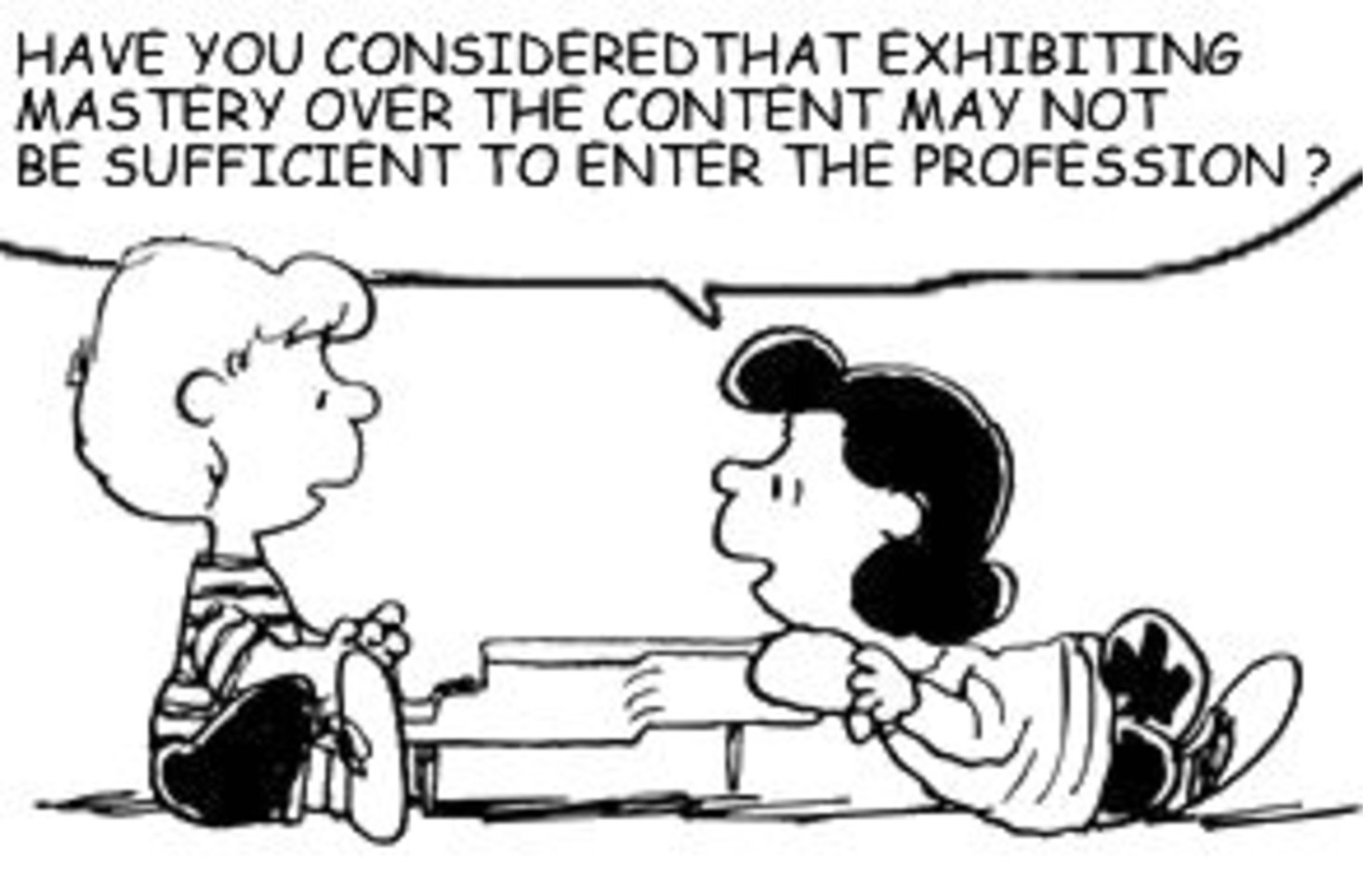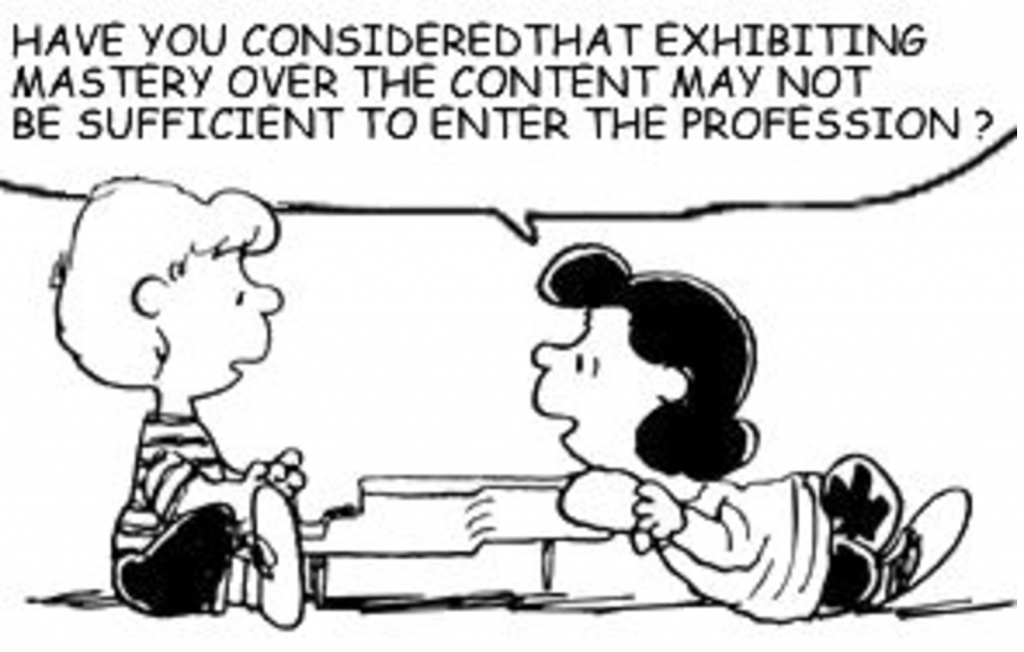I reprint Pam Jakiela’s advice in full. She was the first person I sat next to in grad school. Read it and you will see why she became, and remains, one of my favorite people. If you are interested, Pam’s research is here.
I’ve been working on a general job market advice page for Chicago students (and you) and all of the major advice you will find on the Internet skirt around the issue that Pam does not.
Academic Job Market Advice for PhD Students in Economics
- The most important thing is your job market paper. All the time you spend agonizing over what you should wear, etc., has an opportunity cost. Focus on your research. Be excited about your research. This is why people will want to hire you (even when they don’t fully understand what your research is about).
- You will inevitably encounter a number of situations where older professors will try to explain what is wrong with your research during your job talk. The people who interrupt you may or may not have any idea what they are talking about. It is important that you are firm in your replies, but you should make sure that you show senior faculty sufficient respect. Ideally, you should write each of them a personal thank you email after your talk. Their feedback is valuable, and rudeness in seminars is an important part of our field’s unique culture.
- Do not, under any circumstances, do anything to suggest that you would ever consider compromising your career in any way to improve your quality of life or enable you to live with a spouse or partner. Remember: you are getting hired to be a researcher, you aren’t getting hired to be a human being! Ideally, even your advisers should not know whether or not you have any friends or family outside of the office, or even whether you have left the economics building since you started your PhD.
- At smaller departments, it can be good to signal that you would be a good “fit” by discussing common interests – for example, economics. On some occasions, faculty members may bring their wives to the seminar dinner. It is ideal to show that you have common interests with them, as well – e.g. baking. However, you should make sure it is clear that economics takes precedence. For example, you might explain that you enjoy baking (who doesn’t?), but lately you have only been baking to relieve the stress of the job market.
- Wear comfortable clothing. Campus visits are long days, and often involve a lot of walking. In many parts of the country, the weather will be almost unbearably cold during the flyout season. You may quickly come to regret the decision to wear high heels and stockings. Comfortable, dressy (but not overly feminine) boots and pants suits are ideal.
Special Advice for Male Students on the Job Market*
* NOTE: since I am not a man, I can never totally understand the particular experience of male students. Though I am not a male economist, I’ve talked with several male economists about their experiences. These suggestions are intended to be helpful and supportive.
-
Number #1 applies to you, too: research is paramount. Fortunately, if you are a male in the economics profession, it has probably never occurred to you to spend time thinking about clothes or really anything other than economics.
-
Number #2 is less likely to apply to you, but most male students do have some uncomfortable seminar experiences – remember, not all victims of mansplaining are female! Be firm in your replies. Anything short of throwing the laser pointer at someone is considered acceptable seminar behavior.
-
Unfortunately, Number #3 goes for you, too, male economists: it is fine to reveal the fact that you have a spouse and/or children as long as it is clear that they don’t take priority over your research. Inexplicably, it will somehow be understood that you will accept your best job offer regardless of the prospects for your spouse’s employment.
-
At smaller or more rural departments, it can be helpful to discuss common interests that you might share with senior faculty – for example, man caves, football statistics, and the latest in facial hair removal technology (admittedly, I am just speculating here).
-
Who are we kidding? Almost all dress shoes made for men are perfectly comfortable because… well, because that’s the way the world works. Nonetheless, I would seriously suggest that male economists think twice before deciding to wear heels and stockings during a flyout. We’re making progress as a society and a profession, but I’m not sure we’re there yet.
I asked, via Twitter, what other advice posts (and advice) my colleagues had to offer to job market candidates who are not in the white, male majority. The helpful pointers outweighed the range of… other reactions to my request. But while I got a LOT of advice, there were relatively few online write-ups of advice for academics. Hence my extra love for Pam’s post.
Even so, here are the online materials they suggested. Other suggestions welcome, by email or in the comments below.
- For navigating dual careers as a couple, see the 2014 and 2016 newsletters from the Committee on the Status of Women in the Economics Profession.
- The storify version of #WomenAlsoKnowStuff about the Job Market & Recruiting
- Inside Higher Ed has a discussion forum for marginalized communities in academia called Conditional Accept
- Various posts from The Professor Is In



10 Responses
Thank you for sharing the post and the nice advice, it’s very helpful.
I reprint Pam Jakiela’s advice in full. She was the first person I sat next to in grad school. Read it and you will see why she became, and remains, one of my favorite people. If you are interested, Pam’s research is here.
golu dolls
golu dolls
nice!
rating
This is really an awesome website. I have seen many websites but this one is awesome.
Programming Computer Networking
It’s nice to see the idealism from some of the comments, but this reads as solid advice for any academic job market interview, not just economics.
…i just realized its supposed to be funny. Hmm.
Is this why economists don’t seem to understand human beings, because the culture is 30 years behind the rest of society? (I stumbled here looking for general advice on academic research work, so I am an outsider, pardon the unsolicited opinion. But I am sorry your researchers are not treated as human beings : ( all the more so since what your research ends up influencing so much of how labor is conceived and shaped for all the rest of us, especially women. I feel like I have acquired much insight.
What I find even more ironic than the irony of the post is that an economist, always quick with data, numbers and statistics writes advice that is based on seemingly anecdotal, qualitative, maybe even ethnographic insights (which becomes valuable for humor-not for real research and communication…).
So there is really no space to talk about careers, family and work-life-balance in a job interview in 2016? And at a faculty dinner you will end up with the “wives” talking about “baking” rather than the female PhD student or female professor? To stick with the tone of the post, wouldn’t it be a more realistic scenario that the “girls” (young female faculty/PhD students etc.) would be grouped together at one end of the table and the “boys” on the other?
And you have been to how many presentations were male PhD graduate basically ended up bullying the audience because of critical questions?
Anyway, the post is a bit odd-on the one hand not really ironic in the sense of “do exactly the opposite and you will be fine”, on the other hand ironic enough to unveil how patriarchy is still dominant in academia/economics-but I am not entirely sure to what extent the article is part of the problem and the solution at the same time…
I understand that you need to “play the game” to get a job, but advising women to talk about their love of baking with economists’ wives (for some reason there are no economists’ husbands?) is like telling women not to walk alone because they might get assaulted rather than educating men on why it isn’t ok to harass women.
Why can’t the advice be “Regardless of your gender, discuss common interests so that people get excited about having you as a colleague. Try to find common ground with people’s spouses as well.”
While I admit there is probably some truth to this post, I find the advice deplorable. Any member of an academic department astute enough to recognize these dehumanizing and sexist characteristics of the job search process should be working to remove them, not advising their students to play along.